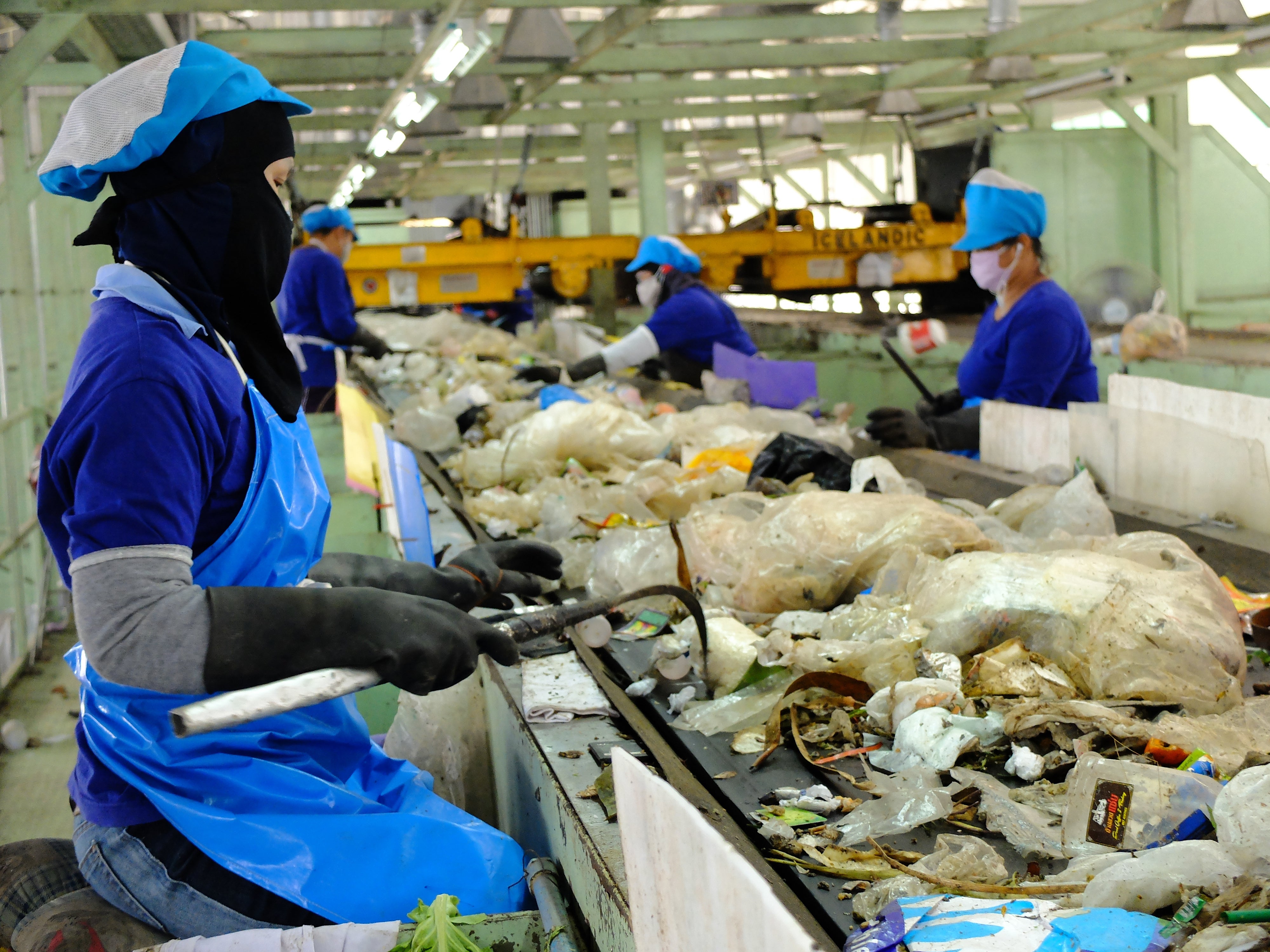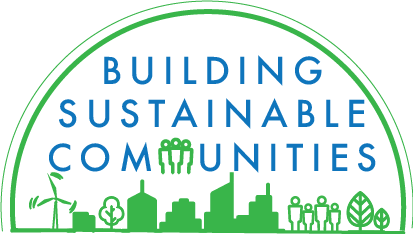
The post-2015 Sustainable Development Goals (SDGs) are an ambitious set of targets that aim to support a comprehensive vision of sustainable development that embraces economic, social, and environmental dimensions. Solid waste plays an important role in several of these goals, including providing sanitation for all, making cities and human settlements sustainable, encouraging sustainable consumption, and reducing climate change.
In the planning undertaken by Multilateral Development Banks (MDBs) to help achieve these goals, one glaring fact stood out: the financial resources needed are not only expected to be substantial, in the “trillions” of dollars annually, but they far outweigh the current “billions” of dollars annually in financial flows from development institutions. Considering this information, it was agreed at the Hamburg G20 Summit that a new approach would be needed to unlock, leverage, and catalyze other sources of financing, including private sector resources.
The approach would more systematically prioritize private financing solutions when they are feasible. That is, private solutions that are already working would be considered as a first option; followed by encouraging private investment by reducing policy and regulatory gaps and risks that currently discourage participation; and, finally, as a last option, when private solutions cannot fulfill all the demands of the sector, public resources could be strategically used.
Considering the successes and challenges of private sector involvement in solid waste, it is an opportune moment to begin to ask: what are the key issues that need to be addressed to better leverage the private sector to provide sustainable solid waste management solutions?
[Read: World Bank Brief on Solid Waste Management]
Have solid waste laws done enough? Regulations and policies have progressed significantly, with many countries establishing new solid waste laws that replace decades-old sanitation or public nuisance legislation. Have these reforms gone far enough to specifically encourage the private sector? Are there functional mechanisms for cost recovery, and is there sufficient flexibility for the private sector to pursue a variety of contractual and financing arrangements? Are the laws truly motivating investment into modern facilities by providing enforceable requirements and standards for the establishment of landfills, closing dumpsites, and establishing recycling facilities? Are the financing schemes predominantly focused on public financing, or do they cater to what the private sector financing needs? It is worth a second look at how these laws respond to these and other issues, and learning from those countries that have taken them on.
Reducing risks through demonstration. Contracting and investing approaches for a variety of technologies that have proven useful in some countries represent a significant risk in other countries. Some of that risk is based on fundamental technical, cultural, or financial barriers, while in other cases it is an artefact of the common practice in each country or locality that can be surmounted through a well-designed demonstration. Landfill gas facility development was accelerated in developing countries by a demonstration project in Monterrey, Mexico, that helped show the technology was possible; and, Design-Build-Operate contracts for solid waste systems were successfully demonstrated in the Philippines, Argentina, and Tunisia. What are the other opportunities for demonstrations, and in what countries could they have an impact?
[Download: What a Waste: A Global Review of Solid Waste Management]
Facing up to the complexities of public-private partnerships: Because of the public nature of many solid waste services, public-private partnerships (PPPs) are a key mechanism to engage the private sector. Solid waste PPPs have had success in many instances, but too commonly fail, even after years of planning. In those that have failed, are we are overlooking important analysis, or not considering enough options to find the appropriate solutions? Some factors that might be reconsidered or serve as reminders of what goes into PPP planning in solid waste include:
Taking advantage of the opportunities provided by all services. A modernized solid waste system includes up to 20 services – from disposal and collection to specialized services such as recycling of batteries and collection of construction debris. Each of these services, and even elements of them, may benefit from private sector efficiency, financing, and expertise. The services may be bundled in a single contract, or disaggregated in multiple contracts. There are many combinations to be considered, and they can be catered to the organizational and financial context and local private sector market.
Running the numbers…well. A fundamental ingredient of private investment is to recover the costs of investment and operation with minimal risk. Without support from public financing and/or a functional user fee billing and collection system, solid waste services are commonly marginal or unprofitable. In this context, any service, even those with a source of revenue such as recycling or energy recovery, cannot be assumed to be profitable without fully understanding all the costs, and the expected timing and risks related to all revenue streams. By studying and providing transparent numbers and risk analysis upfront, time wasted on unviable investments can be avoided and sustainable cost and risk sharing arrangements can be developed.
Focus on an integrated and functional solid waste system. When pursuing private sector involvement in one service, such as composting or waste-to-energy, it is easy to lose sight of the need for an integrated system that provides for healthy and safe collection, treatment, and disposal of waste. For example, waste-to-energy facilities need to include disposal service to manage the ash residues; and composting reduces dependence, but does not substitute for the services of final disposal or combustion technologies. Ensuring good planning for an integrated set of quality services will prevent unintentional impacts and allow for a functional system.
The option of taking one step at a time. Solid waste services commonly rely on a combination of government budget and user fees, and often suffer from insufficient budget and limited liquidity. Lack of timely payment of contracts, and an inability to generate revenue to recuperate investments, are common shortcomings of PPP contracts in waste management. Approaches where the public entity takes months to years to professionalize its management and build a track record of payment through a contract with a private operator is a viable way to encourage institutional change, eventually allowing them to leverage private sector financing.
The World Bank supports both the private and public sector on solid waste management, support which has included over $4.5 billion in lending in 329 projects since 2000. These projects encourage policy reform and provide financing for infrastructure and complementary technical assistance to introduce and modernize collection and disposal, and expand reuse and recycling programs. The International Finance Corporation (IFC), as part of the World Bank Group, provides direct support to the private sector, mobilizing scarce capital, knowledge, and long-term partnerships that can help address critical constraints to the development of the private sector in solid waste management.
As the challenges of sustainable development evolves, the World Bank will be working with other multi-lateral and bilateral development partners, industry organizations including the International Solid Waste Association (ISWA), and the private sector to expand the scale and impact of financing to reach the SDGs.
What should international finance institutions focus on the future to fill the financing gap necessary to reach sustainable development goals? What are your ideas on how can we best work with the private sector?
Related Links:
- Blog post: The power of data in driving sustainable development… Is solid waste the low hanging fruit?
- Subscribe to our Sustainable Communities newsletter
- Follow us on Twitter (@WBG_Cities) and Flipboard



Join the Conversation